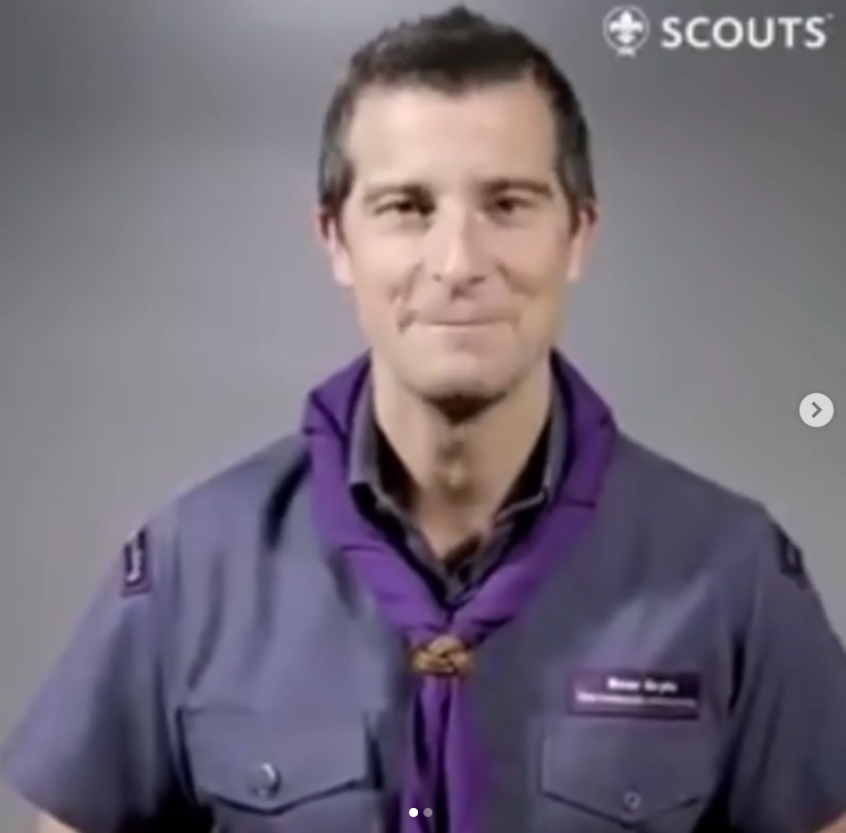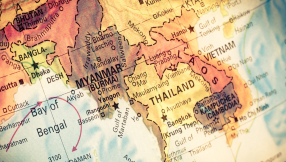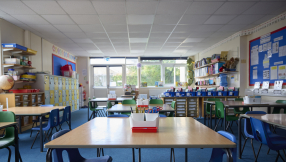
Bear Grylls says the Scouts can save children from developing extremist views as he revealed Muslims are increasingly keen to join.
As he takes up the role of chief ambassador for the global Scout movement, the SAS-trained adventurer wants to harness the growing interest of Muslim children in the fight against radicalisation and extremism.
Speaking to The Telegraph, he argued that the Scouts could teach Muslim children British values and steer their interest away from extremist groups like ISIS.
'We have hundreds of mosques every week, reaching out, asking, "Can we start up groups?" he said.
'MI5 is spending resources to stem the blood but we're saying, "Don't create the wound."
'That's why we have the mosques coming to us. They're saying: 'Hold on, we can see that you're providing hope, purpose, pride, British values, sense of discipline.
'All the things that ISIS give people, but for good, not bad. Come and speak to our youths.'
The evangelical Christian, who new book Soul Fuel offers daily devotionals, is not only hoping to take on extremism. He also wants the Scouts to be an integral part in the fight against gang violence blighting parts of the UK and particularly London.
The Scouts, he said, could provide 'a positive alternative to kids joining gangs'.
'It's what I was saying about the young, Muslim kids in this country. If you don't give them something good, they go to the bad,' he said.
He added: 'I have total confidence going into those groups and saying, "Do you want to climb a mountain?" One might laugh, but 99 per cent will say, 'Yeah, I want to do it.'
A father-of-three, Grylls has made his name with hit TV shows on both sides of the Atlantic showing how he survives some of the toughest places on earth, often taking celebrities along for the ride.
He has been Chief Scout since 2009, an appointment which, according to The Telegraph, fuelled an unprecedented 43 per cent rise in membership from 446,000 in 2006 to 638,000 in 2018.
His message is also extending to parents, who he believes should let kids take more risks and show what life can be away from screens and smartphones.
He warned that the focus on safety in the home and at school is raising an entire generation of children who are not equipped to deal with the challenges of life.
'When you strip risk out of kids lives, you do them a disservice,' he told the newspaper.
'Life is full of risks. Lack of risk leads to a lack of independence which explains why anxiety is such a big problem among young people.'









